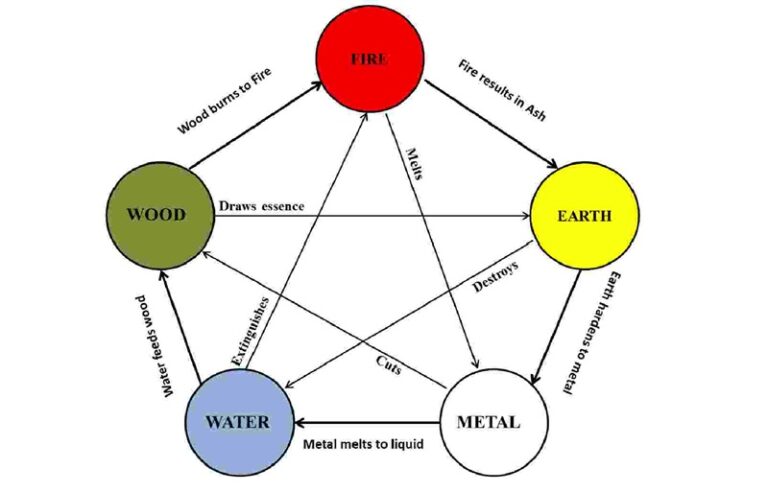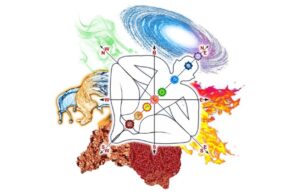Best Interior Design Institutes in South Delhi: Top Courses, Fees...
Read MoreWhat is a Scientific Vaastu Shastra Course? Ancient Wisdom with Modern Logic
Scientific Vaastu Shastra, or simply Vastu, is an ancient Indian architectural and design philosophy that has endured for thousands of years. It is believed that this enigmatic system has the power to affect how our communities are organized, fostering prosperity, well-being, and peace. It is important to make clear that, despite the ardent claims of some Vastu adherents, Vastu is not regarded as a scientific discipline by mainstream science. However, some ideas and tenets in this antiquated philosophy lend themselves to explanation via the prisms of psychology and science.
Scientific Elements of Vastu:
Although the scientific community does not regard Vastu Shastra as a legitimate science, we can examine some of its core principles from a scientific and psychological standpoint. Below are a few examples of any scientific principles that are at the root of some of the Vastu principles:
- Natural Light and Ventilation: Vastu promotes natural light and ventilation for buildings, too. It is widely documented that natural light is important for human well-being. Sunlight provides important vitamin D for health and helps stimulate our circadian cycle.
- Room Placements: Thinking about where to place specific rooms is good for tangible benefits because you should benefit from putting the habits and daily routines in the correct areas. Especially in India, you will have some benefits that include safety/surrounding conducive air, if you put the kitchen in the southeast, where the direction is fire, so that is advantageous in many ways.
- The Idea of a Clean Up and Tidy Up: Vastu’s idea of cleaning and tidying spaces is also very much supported in modern-day psychology. Studies have shown that messiness can produce stress in the living environment, sweaty palms with low productivity, while an arranged space energizes productivity.
- The Idea of a Clean Up and Tidy Up: Vastu’s idea of cleaning and tidying spaces is also very much supported in modern-day psychology. Studies have shown that messiness can produce stress in the living environment, sweaty palms with low productivity, while an arranged space energizes productivity.
- The Idea of a Clean Up and Tidy Up: Vastu’s idea of cleaning and tidying spaces is also very much supported in modern-day psychology. Studies have shown that messiness can produce stress in the living environment, sweaty palms with low productivity, while an arranged space energizes productivity.
- The Idea of a Clean Up and Tidy Up: Vastu’s idea of cleaning and tidying spaces is also very much supported in modern-day psychology. Studies have shown that messiness can produce stress in the living environment, sweaty palms with low productivity, while an arranged space energizes productivity.

Scientific Vaastu Shastra, the ancient Indian philosophy of design and architectural practice, is an interesting and complicated approach that is full of history and culture. While it may not receive the scientific badge of honor, it certainly contains features with scientific and psychological reasoning. The aspects of natural light, ventilation, decluttering, and psychological well-being in Vastu complement contemporary architectural practice and contemporary psychology. However, it will be important to embrace Vastu while having an educated and open mind to its cultural context and the absence of scientific evidence.
Whether to practice Vastu or not is a very personal decision. If you choose to practice Vastu, it can be done in a way that likely will complement contemporary architectural practice and will focus on the safety, functional considerations, and aesthetic intentions of the living space. Ultimately, the success of the living space, regardless of whether it is a space informed by Vastu or not, will be determined by numerous factors, including personal taste, cultural beliefs, well-being of the individual, and more.
Hence, students of Architecture and interiors must definitely enroll in the Scientific Vastu Shastra course, which many colleges and institutes offer.
Why Study a Scientific Vastu Shastra Course at IVS School Of Art & Design
At IVS School Of Art & Design, we don’t teach Vastu Shastra as blind belief—our Scientific Vastu Shastra course blends tradition with modern logic. It helps you:
- Understand cultural and design traditions.
- Use Vastu principles for real comfort and functionality.
- Adopt holistic and sustainable design thinking.
- Balance aesthetics with client needs & well-being.
With IVS, it’s not superstition—it’s ancient wisdom reimagined through architecture, interior design, and psychology to enrich your design insight.

Ar. Soniya Tiwari
Senior Faculty
Ar. Soniya Tiwari is a seasoned architect specializing in interior design, with a Master’s in Landscape Architecture. With 15+ years of experience, she blends functionality and aesthetics in residential and commercial projects. A passionate educator, she has mentored aspiring designers, shaping successful careers. Continuously evolving with industry trends, her impact extends beyond spaces into the minds she inspires.
Interior Design Institutes in South Delhi: Best Colleges, Courses & Career Guide 2025
Interior Design Institutes in South Delhi: Best Colleges, Courses &...
Read MoreWhat is a Scientific Vaastu Shastra Course? Ancient Wisdom with Modern Logic
What is a Scientific Vaastu Shastra Course? Ancient Wisdom with...
Read MoreHow a Visual Communication Course Transforms Your Design Thinking in the Digital Age
How a Visual Communication Course Transforms Your Design Thinking in...
Read More




